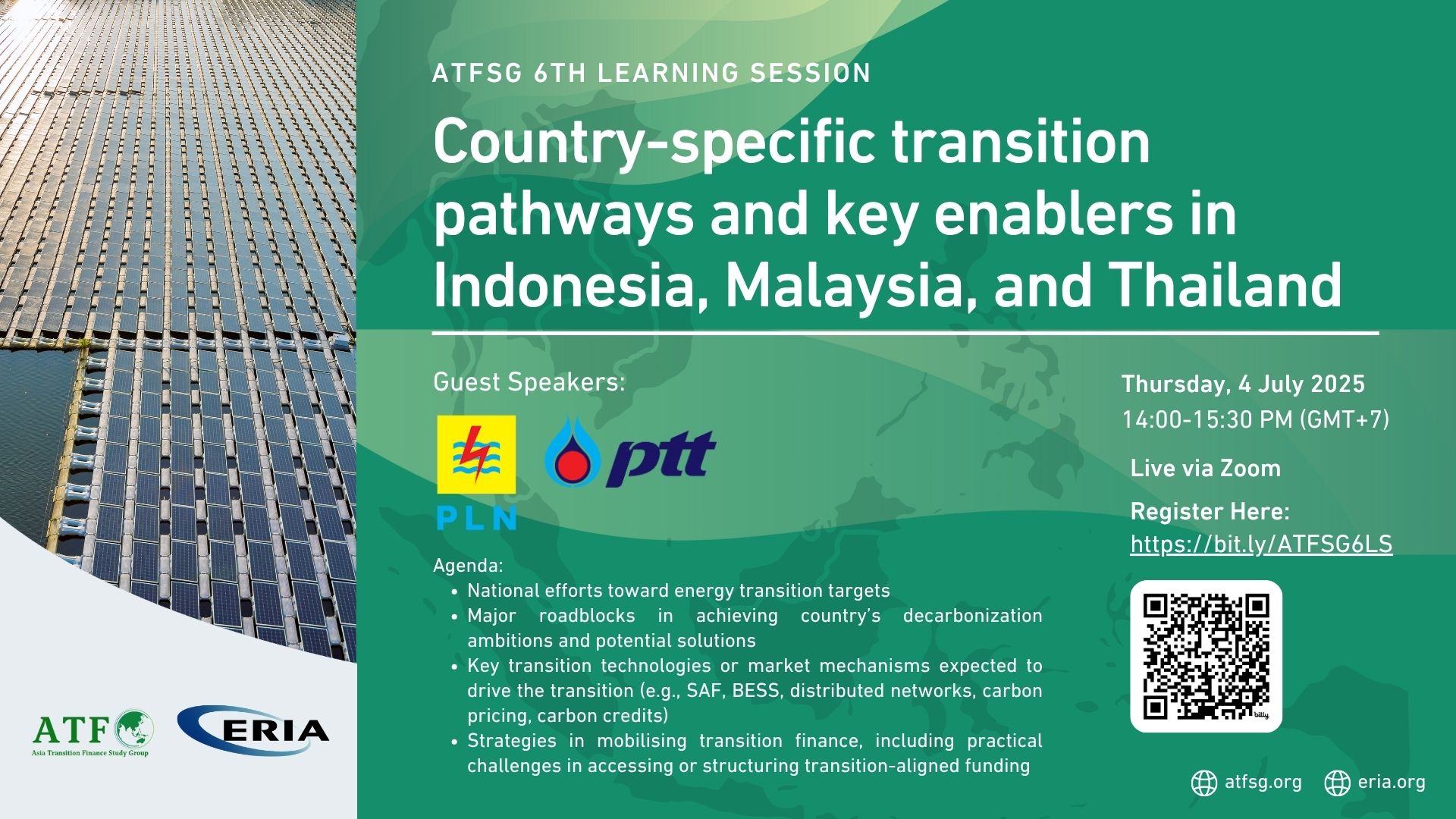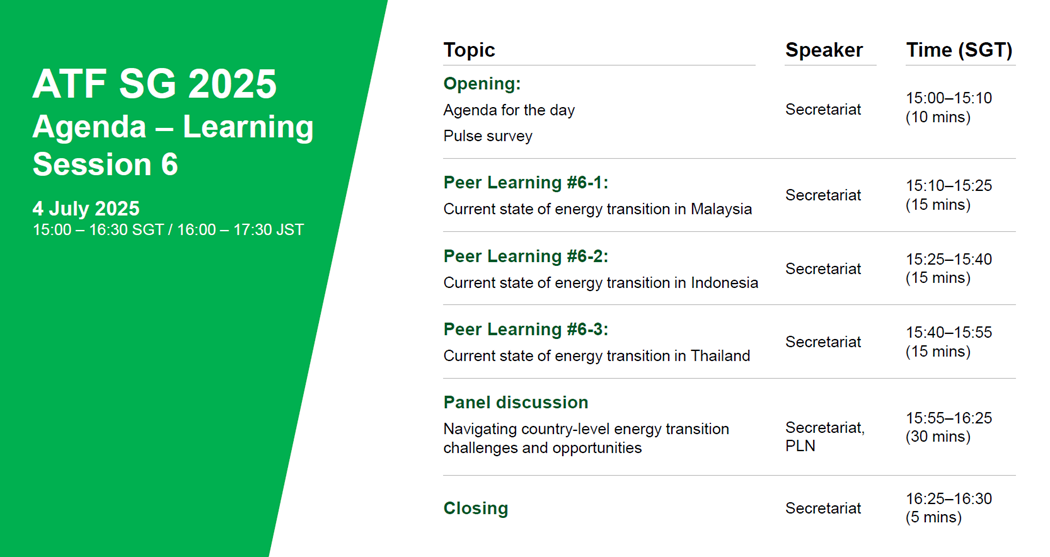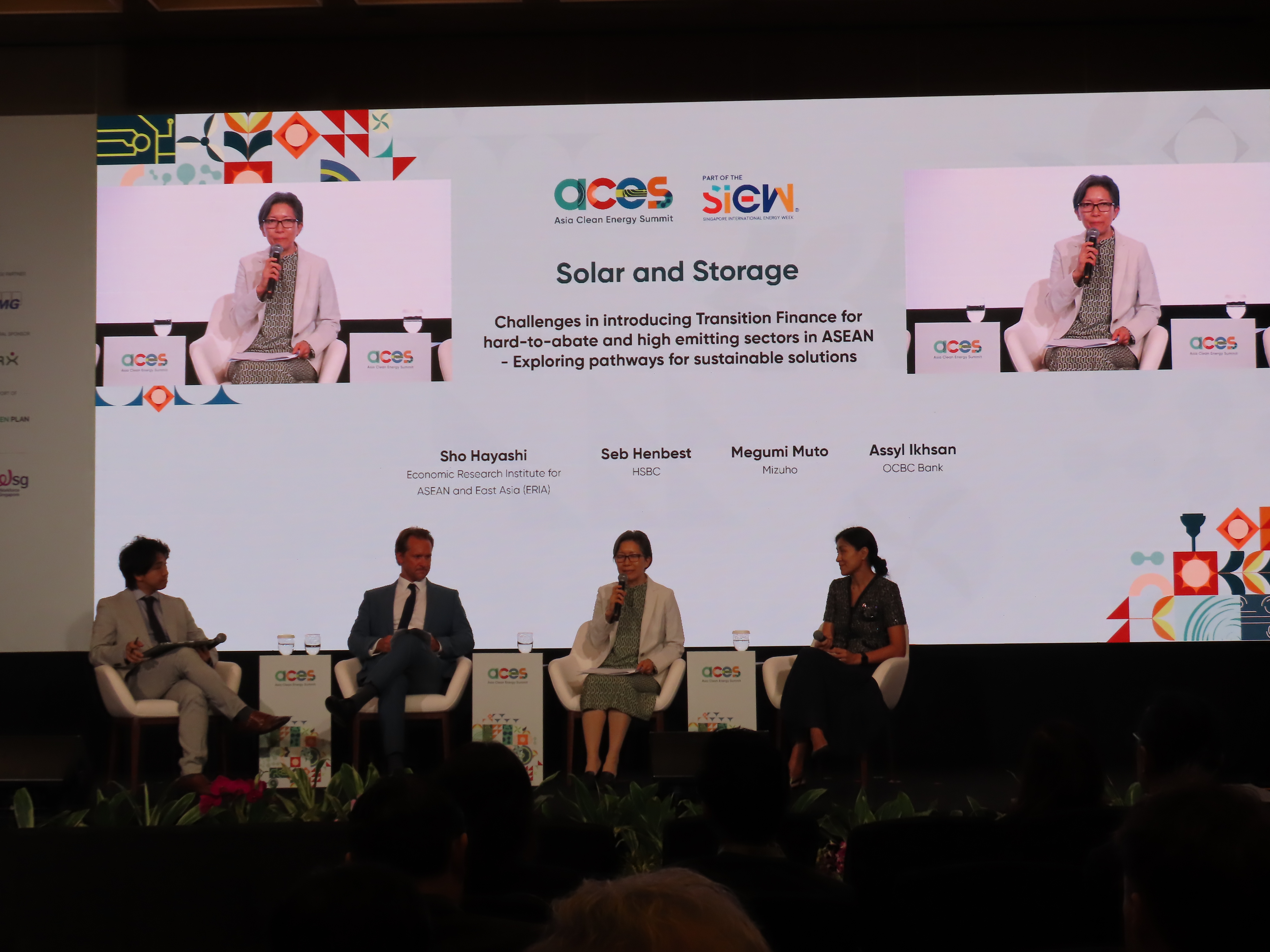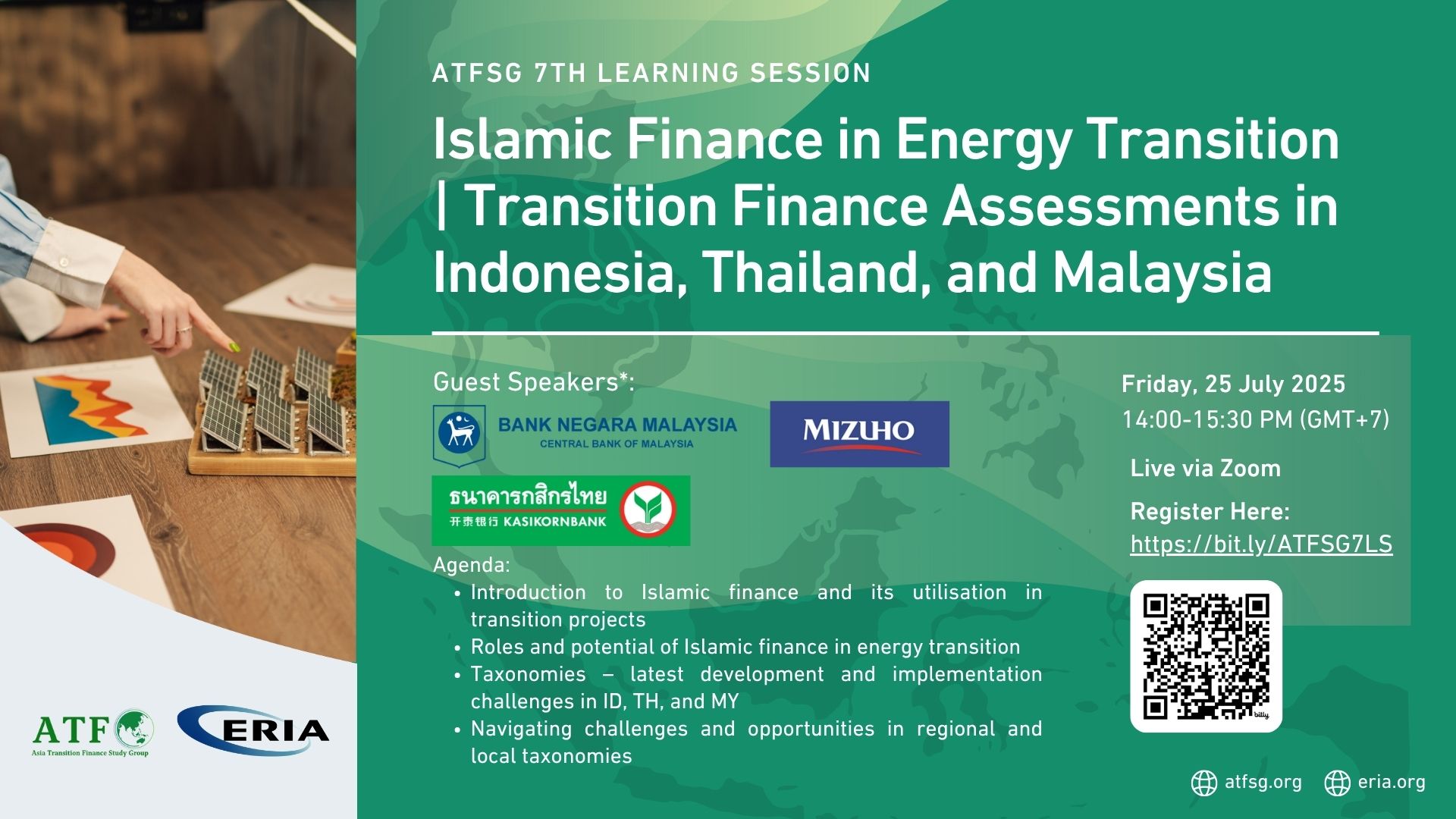[LS6] - Country-specific situation and unlocks: Country-specific transition pathways and key enablers in Thailand, Indonesia, and Malaysia
07 July 2025
The Asia Transition Finance Study Group (ATF SG) held the sixth learning session (LS6) of 2025 on 4 July (Fri).
The ATF SG hosted the sixth learning session for 2025 on 4 July via Zoom, focusing on country-specific situation and unlocks for Thailand, Indonesia, and Malaysia.
The Secretariat opened the session with an overview of the energy transition landscape in these three countries. This included each country’s progress toward net zero targets, the renewable energy capacity additions required to meet those goals, key challenges, and potential solutions.
In Malaysia, achieving a just and orderly transition by 2050 will require unlocking scale, capital, and regional synergies. The Secretariat emphasized the importance of parallel efforts—advancing both solar + battery energy storage systems (BESS) and nascent technologies—while also highlighting the need for deeper regional collaboration, such as through the ASEAN Power Grid, given the limited hydro and wind potential in Peninsular Malaysia.
For Indonesia, the Secretariat pointed to the country’s continued heavy reliance on coal and challenges posed by its archipelagic geography which limits power system interconnection. To address this, economic diversification, reforms to power purchase agreements (PPAs), greater legal clarity, and significant investment in transmission infrastructure were highlighted as necessary steps forward.
In Thailand, the power generation, transportation, and agriculture sectors were identified as priority areas for decarbonisation. The Secretariat outlined key regulatory, infrastructural, and financial barriers, along with corresponding solutions—such as pricing mechanisms to drive renewable energy expansion in the power sector, accelerating EV adoption in transport, and promoting low-carbon technologies in agriculture—to enable a just and orderly transition.
The session concluded with a panel discussion among all guest speakers, including representatives from PT PLN (Persero) and PTT. Panelists discussed lessons learned, highlighting the importance of regulatory frameworks, reflected on major uncertainties and risks associated with transition finance, and shared their views on public-private partnership in supporting the energy transition.



